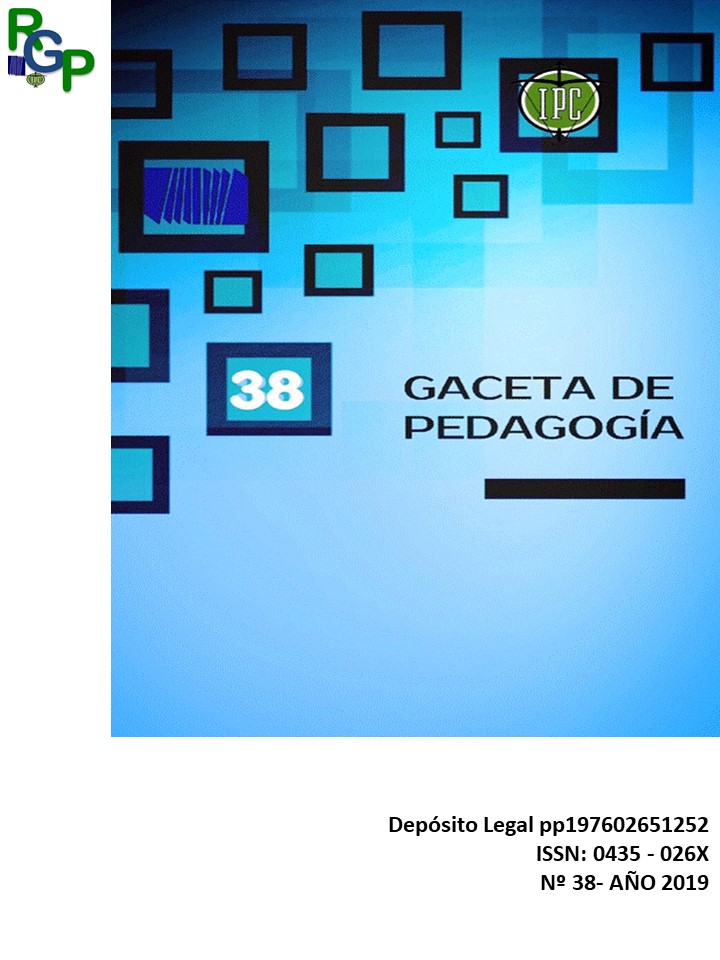The academic discourse of the instructional process in the framework of distance education
Keywords:
Academic speech, Discursive strategies, Long distance education, Participatory action researchAbstract
The instructional process that occurs in the different careers offered by the National Open University (UNA) is mediated by an Academic Discourse (DA). With this article, the intention is to present the progress of a research in progress on the academic discourse of the instructional process in the framework of distance education. As theoretical support they are taken in postulated considerations referring to the pedagogy of discourse, academic discourse, distance education and discursive strategies. The selected methodology corresponds to the phases used in Participatory Action Research (PAR), because it implies a dynamic that favors the generation of changes in social and educational practices. These phases imply a diagnosis, building action plans, the execution of these plans and the permanent reflection of those involved in the investigation, which allows resizing, reorienting or rethinking, new actions in response to the reflections made. A first approach was made with reality (as an initial part of the diagnostic phase) with the participation of the actors involved in university dynamics who consider that the DA used in UNA is satisfactory; however, it can be improved, among other reasons, with the use of ICT.
References
Alcalá, A. (2009). Andragogía: Ciencia y arte de la educación de personas adultas. Caracas: UNA. Ediciones especiales de la Dirección de
Investigaciones y Postgrado.
Alfonso, A., Arellano, E., Ojeda, N. y Guzmán, W. (2013). Lineamientos para la elaboración de planes de curso. En Martín M., Guzmán W., Alfonzo A. (Comp.) (2013). Diseño Instruccional en Educación a Distancia. Experiencias en la Universidad Nacional Abierta de Venezuela. Caracas: Universidad Nacional Abierta
Colmenares, A. (2012). Investigación-acción participativa: una metodología integradora del conocimiento y la acción. [Artículo en línea]. En: Voces y Silencios: Revista Latinoamericana de Educación, 3 (1), 102-115 Disponible en: https://revistas.uniandes.edu.co/doi/pdf/10.18175/vys3.1.2012.07 [Consulta: 2019, septiembre 19]
Edwards, V. (1995). Las formas de conocimiento en el aula. En E. Rockwell (Coord.). La escuela cotidiana (pp. 145-172) México: Fondo de Cultura Económica.
García Aretio, J. (2001). Educación a distancia de la teoría a la práctica. Barcelona: Ariel.
Hall, B. y López, M. (2011). Discurso académico: manuales universitarios y prácticas pedagógicas. Literatura y Lingüística, (23) 167-192. Disponible en: https://scielo.conicyt.cl/scielo.php?script=sci_arttext&pid=S071658112011000100010&lng=pt&nrm=iso&tlng=es [Consulta: 2019, septiembre 20]
Latorre, A. (2007). La investigación - acción. Conocer y cambiar la práctica educativa. Barcelona: Grao.
Leal, N. (2013). El material instruccional de la UNA desde la perspectiva de los egresados. En Martín M., Guzmán W., Alfonzo A. (Comp.) Diseño Instruccional en Educación a Distancia. Experiencias en la Universidad Nacional Abierta de Venezuela. Caracas: Universidad Nacional Abierta.
Mercer, N. (1997). La construcción guiada del conocimiento. Barcelona: Paidós.
Mercer, N. (2001). Palabras y mentes. Cómo usamos el lenguaje para pensar juntos. Buenos Aires: Paidos
Montolío, E. (Coord.) (2000). Manual de escritura académica. Vol. II. Barcelona: Ariel.
Mostacero, R. y Villegas, C. (2017). La pedagogía del discurso: antecedentes y función transformadora. Acción Pedagógica, 26 (1), 6-16. Disponible en: https://dialnet.unirioja.es/descarga/articulo/6344970.pdf. [Consulta: 2019, agosto 20]
Parodi, G. (2007). El discurso especializado escrito en el ámbito universitario y profesional: Constitución de un corpus de estudio. [Artículo en línea] Revista Signos 40(63). Disponible en: https://www.redalyc.org/articulo. oa?id= 1570137 72008. [Consulta: 2019, agosto 28]
Pérez Serrano, G. (1998). Investigación cualitativa: retos e interrogantes. Madrid: Muralla.
Tapia, M., Burdiles, G. y Arancibia, B. (2003). Aplicación de una pauta diseñada para evaluar informes académicos universitarios. Revista Signos, 36 (54), 249-257.
Universidad Pedagógica Experimental Libertador. (2009). Prospecto académico de Estudios de Postgrado del IPC. Caracas: UPEL- IPC.
Van Dijk, T. (Coord.) (2000). El discurso como estructura y proceso. Estudios sobre el discurso I. Una aproximación multidisciplinaria. Barcelona: Gedisa.
Vilá, M. (2000). La enseñanza y el aprendizaje del discurso oral formal: Una secuencia didáctica sobre las explicaciones orales en clases. Tesis Doctoral no publicada Universidad Autónoma de Barcelona, España.
Wertsch, J. (1988). Vygotski y la formación social de la mente. Barcelona: Paidós.

Downloads
Published
How to Cite
Issue
Section
License
Copyright (c) 2022 GACETA DE PEDAGOGÍA

This work is licensed under a Creative Commons Attribution-NonCommercial-NoDerivatives 4.0 International License.
